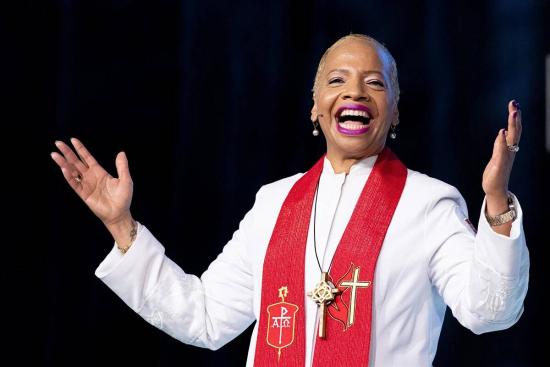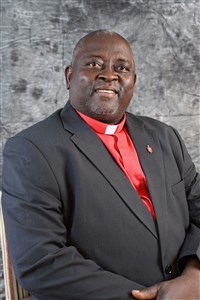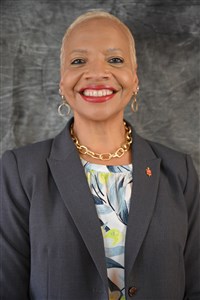
Malone Becomes First Black Woman to Assume Top Office
The United Methodist Church (UMC) has reversed anti-gay policies, including a 40-year-old provision that outlawed gay clergy and a 52-year-old policy that condemned homosexuality. UMC’s General Conference also has passed a preliminary vote on restructuring the worldwide church.
- The LGBTQ+ legislation removed – without debate — language that prohibited “self-avowed practicing homosexuals” from entering the ministry.
- Delegates also overturned “longstanding rules prohibiting clergy from officiating same-sex weddings or churches from hosting them,” the UMC said.
- The church approved more inclusive language in the Book of Discipline, which outlines how United Methodists govern themselves.
- Delegates saw Bishop Tracy S. Malone become the first black woman in the denomination’s history to assume the highest post in the worldwide United Methodist Church — president of the Council on Bishops.
- And the General Conference ended disaffiliation and took a step toward restructuring – or regionalizing — the worldwide church.
The General Conference, which is the UMC’s chief legislative body, met in Charlotte, N.C., from April 23-May 1. The conference typically convenes every four years but had not gathered since 2019 largely because of COVID.
UMC Addresses Gay Bans, Future Direction
Delegates struck down a 52-year-old policy that condemned homosexuality as “incompatible with Christian teaching.” While UMC has reversed anti-gay policies, delegates approved language that recognizes the sacred worth of all people. And they urged the Council of Bishops to be inclusive in naming representatives to ecumenical organizations.
In other business, the General Conference ended UMC’s disaffiliation policy, which allowed thousands of churches to leave the denomination. They also set in motion plans to allow churches to rejoin the UMC.
The recent division was the largest denominational split in the U.S. since the Civil War, according to Christianity Today. Approximately 7,600 of 30,000 UMC congregations left the church between 2019 and 2023, the organization said. Some of those churches established the conservative Global Methodist Church in May 2022, while others became non-denominational.
Group of African Delegates Protest

About 65 African delegates and others protested UMC’s decision to reverse anti-gay policies. Meanwhile, supporters of the legislation celebrated a short distance away, the UMC reported. Among the protestors was Bishop John Wesley Yohanna of Nigeria.
“Marriage is between a man and a woman, period,” Bishop Yohanna some speinsisted. He has previously said he would leave the United Methodist Church if it endorsed same-sex marriage, and he predicted the votes will affect church membership in Africa.
“We return to Africa with important decisions to make regarding the future,” said the Rev. Jerry Kulah, who led the protest. “We do not believe we know better than the Bible.” Rev. Kulah was a Liberian delegate to the General Conference, as well as coordinator of the traditionalist African Initiative.
According to the UMC, “Most African United Methodist bishops have expressed strong support for the traditional definition of marriage, while also saying they are committed to the United Methodist Church, provided church policies can be adapted to the African context.”
While UMC has reversed anti-gay policies, the General Conference’s vote to regionalize the worldwide church could impact the African United Methodist Church’s future. The amendment now goes to the church’s annual conferences for a final decision. (See “United Methodists Vote ‘Yes’ on Worldwide Restructuring” on Beliefnet here.)
First Black Woman Takes Top Post
In other business, some 800 delegates and several hundred observers looked on as Bishop Tracy S. Malone, who is resident bishop of the East Ohio Conference, accepted the president’s gavel from outgoing president, Bishop Thomas Bickerton. She received a standing ovation.

“I am honored to serve as the president of the Council on Bishops in the midst of these challenging and hope-filled times in the life of our beloved United Methodist Church,” Bishop Malone told General Conference attendees.
“Fresh winds of God’s spirit are moving across the church and creating missional pathways for the next visible expression and witness of the United Methodist Church,” she said. She added that she is “hope-full, encouraged, grateful and excitedly expectant” for the church’s future.
Bishop Malone was elected president during the Council on Bishops meeting at Lake Junaluska, N.C., last November. She will serve a two-year term.
As president, she will lead the Council on Bishops leadership team, which includes Bishop Ruben Saenz, president-designate and resident bishop of Central Texas and North Texas Conferences; Bishop L. Jonathan Holston, secretary and resident bishop of the South Carolina Conference; and Bishop Thomas J. Bickerton, past president and resident bishop of the New York Area.
UMC Disaffiliation Policy Ends
“The season of disaffiliation ends today,” delegate Lonnie Chafin told the General Conference. Chafin is chair of the Conferences legislative committee and a delegate from the Northern Illinois Conference.
This year’s General Conference voted 526 to 203 to end the church’s disaffiliation policy, which was added to the Book of Discipline by the special conference held in 2019. Delegates also decided that the annual conferences must establish a reaffiliation policy for churches that wish to return to the UMC.
Lonnie said these actions “will send a message to our congregations that it’s time to speak of how we come together and share the love of God.”
Regionalization Moves Forward
Following the General Conference’s vote to create four equal regional conferences, the church’s annual conferences will now consider the plan. The voting process will begin no later than 30 days after the General Conference adjourned on Friday and conclude by the end of 2025.
If the plan is approved, the church will be divided into the U.S., Africa, Europe and the Philippines regions. The church explained that its underlying theology and mission will remain global, but “it is unrealistic to try to deploy them in exactly the same ways in Kampala, Uganda, as in Frankfurt, Germany… and expect them to be equally effective or applicable in each place.”
Consequently, the four regions will be able to adapt parts of the Book of Discipline to better suit their particular cultures. North Katanga Area Bishop Mande Muyombo explained that African United Methodists, for example, will continue to uphold marriage as the union of one man and one woman. Other regions will not.
“Some speak of it as a solution to a General Conference that is too U.S.-centric,” the church said in a series of posts called Ask the UMC. “Others appreciate it for its value of creating more regional control and autonomy worldwide.
“There are also some who oppose it because they believe it is primarily a way for United Methodists in the United States to change the rules about human sexuality in ways (opponents) cannot abide.”
As the 2024 General Conference came to a close, Rev. Kulah called regionalization “unacceptable,” while the Rev. Dee Stickley-Miner, a delegate from the West Ohio Conference, said it will ultimately strengthen the denomination’s connection.
The Council on Bishops is expected to announce the final decision on regionalization late next year, the UMC said.


